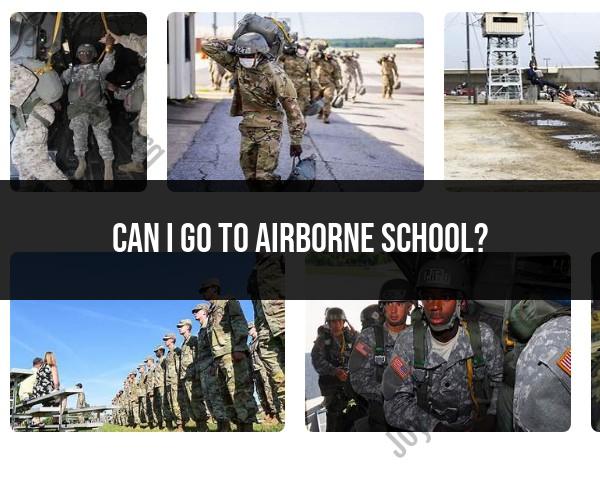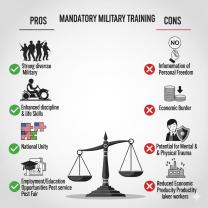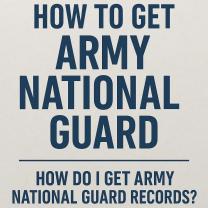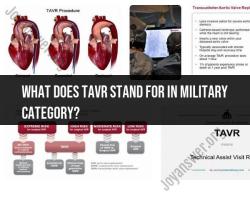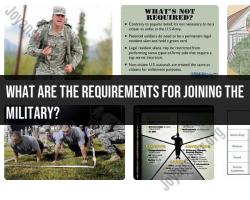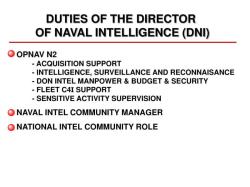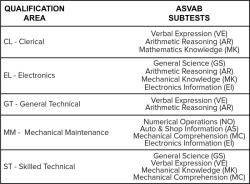Can I go to Airborne School?
Airborne School, also known as the U.S. Army Airborne School, is open to eligible personnel from various branches of the U.S. military, primarily the Army. To attend Airborne School and earn the coveted "jump wings," individuals must meet specific requirements and eligibility criteria. Here are the typical requirements for attending Airborne School:
Military Branch: Airborne School is primarily for Army personnel, including active-duty, National Guard, and Army Reserve soldiers. However, some slots may be available to personnel from other branches, such as the Marine Corps, Navy, Air Force, and Coast Guard, on a limited basis.
Physical Fitness: Individuals must meet the physical fitness standards set by their respective branch of service. This includes passing the Army Physical Fitness Test (APFT) for Army personnel and the equivalent fitness test for other branches.
Medical and Dental Clearance: Attendees must be medically and dentally qualified for parachute duty. This includes a medical examination to ensure they are physically fit for the training and the rigors of parachute jumping.
Packing Parachute: Soldiers attending Airborne School typically pack their own parachute or are assisted by qualified riggers. They must be trained in this skill as part of the course.
Age: There is usually no age restriction for attending Airborne School. However, older soldiers may be subject to additional physical fitness and medical screening.
Weight and Height: While there is no specific weight limit for Airborne School, individuals must be within their service's prescribed weight and body fat standards. Height and weight restrictions may apply to the specific aircraft and equipment used during training.
Basic Training Graduation: In most cases, individuals are required to have successfully completed basic training or its equivalent for their branch of service before attending Airborne School.
Service Commitment: Some branches may require individuals to make a service commitment, typically one or two years, after completing Airborne School, as it is considered a valuable skill in the military.
It's essential to note that Airborne School slots can be competitive, and not all individuals who meet the basic eligibility requirements will be guaranteed a spot. Selection may depend on factors such as a soldier's military occupational specialty (MOS), unit needs, and available training quotas.
If you are interested in attending Airborne School, you should speak with your unit leadership or personnel office to express your interest and determine if you meet the specific eligibility criteria for your branch of service. They can provide guidance on the application process and the availability of training slots.
Eligibility and requirements for attending Airborne School
To be eligible to attend Airborne School, you must meet the following requirements:
- Be a member of the US military in good standing.
- Be between the ages of 17 and 36.
- Be physically fit and have a passing score on the Army Physical Fitness Test (APFT).
- Have a minimum GT score of 100 on the Armed Services Vocational Aptitude Battery (ASVAB).
- Be able to speak, read, and write English proficiently.
The process of enrolling and securing a slot in Airborne School
Once you have met the eligibility requirements, you can enroll in Airborne School by submitting a DA Form 4187, Request for Airborne Training, to your chain of command. Your chain of command will then submit your request to the Airborne and Ranger Training Brigade (ARRTB).
The ARRTB will review your request and determine if you are eligible to attend Airborne School. If you are approved, you will be assigned to a class and given a start date.
Preparations for military personnel and civilians interested in Airborne School
If you are interested in attending Airborne School, there are a few things you can do to prepare:
- Get in good physical condition. The APFT is a challenging test, so it is important to train regularly.
- Familiarize yourself with the Airborne School curriculum. You can find this information on the ARRTB website.
- Mentally prepare for the challenges of Airborne School. Airborne School is a demanding course, both physically and mentally. It is important to be prepared to push yourself to your limits.
Training and coursework at Airborne School for different branches of the military
The Airborne School curriculum is the same for all branches of the military. The course consists of three phases:
- Ground Week: This phase focuses on ground training, including physical conditioning, parachute safety procedures, and practice jumps.
- Tower Week: This phase focuses on tower jumps. Tower jumps are simulated parachute jumps from a 34-foot tower.
- Jump Week: This phase is the final phase of Airborne School. During Jump Week, students will complete five live parachute jumps from a C-130 aircraft.
Career opportunities and benefits associated with completing Airborne School
Completing Airborne School opens up a variety of career opportunities for military personnel. Airborne-qualified soldiers are eligible for assignments to elite units, such as the 82nd Airborne Division and the 173rd Airborne Brigade. Airborne-qualified soldiers are also eligible for additional pay and benefits.
In addition to the career opportunities, completing Airborne School also has a number of other benefits, including:
- Increased confidence
- Improved leadership skills
- Enhanced physical fitness
- A sense of accomplishment
Overall, Airborne School is a challenging but rewarding experience. It is a great way to develop your skills and knowledge, and to become a more well-rounded soldier.
